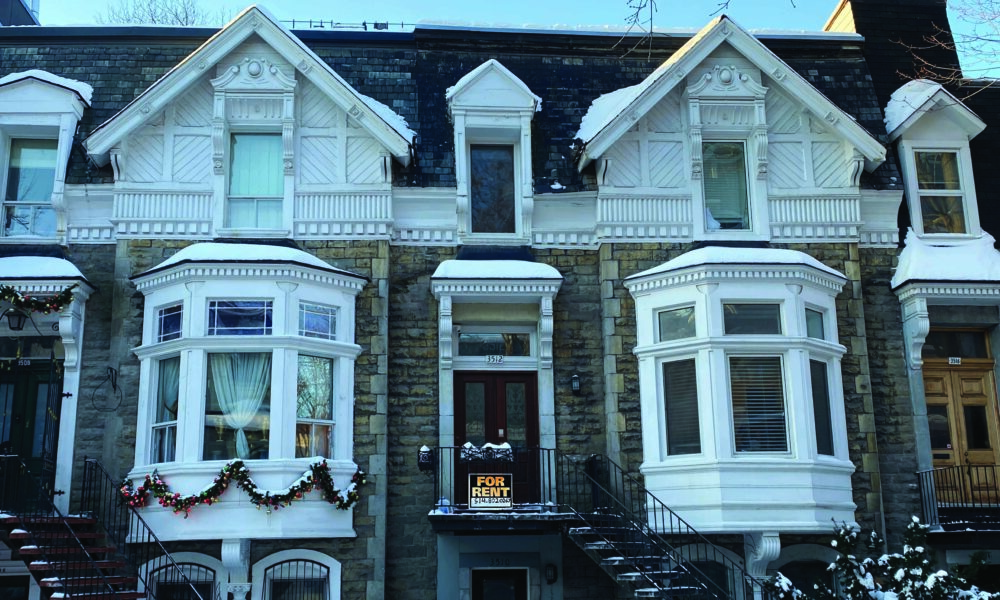With the winter semester well underway, McGill students are beginning to ask themselves the all-important question: Where will I live next year? For many, the mere thought of delving into apartment hunting amid the return to hybrid learning is anxiety-inducing, to say the least. The range of different neighbourhoods, roommates, floorplans, and price ranges can seem both endless and daunting. However, The McGill Tribune’s foolproof tips will help get you on track to finding the right apartment at the right price.
1. Deciding on your must-haves
The first step in finding your dream apartment is identifying what you’re looking for. Start by making a list of your “must-haves” and your “nice-to-haves”. For instance, if you are an avid baker, a spacious kitchen with sufficient counter space might be one of your must-haves. In particular, consider what amenities you wish to have included, the type of appliances, furniture, natural light, transit access, as well as the location of the apartment. This list will come in handy when visiting apartments and making your final decision.
2. Budget, budget, budget
Before even beginning the search, it is critical to determine your budget range. Studio and one-bedroom apartments tend to have the highest rent per person, so you might consider living with roommates to offset costs. Generally, the higher your number of roommates, the lower your rent will be. However, communal living may not be suited for everyone. Before rushing into a decision, reflect on whether you would be comfortable sharing your space with others or making compromises. Stay realistic about what you can afford to spend on rent while still having room for other expenses, such as wifi and utilities if not included. Compare your findings with the average rent prices of each neighbourhood to glean a greater perspective, and try to find lease transfer agreements for below-market prices; apartment swapping guarantees that the previous rent does not increase between tenants.
3. Finding roommates
Not only does living with roommates help you save money on rent, but it’s also a great way to socialize and feel more a part of McGill’s student community. For those who are interested in living with one or several roommates, consider how well your day-to-day routines align. Is your potential roommate a night owl, while you need to get up before sunrise for swim practice? Do they like to party, while you prefer to stay in? How do your cleaning preferences mesh? Asking questions like these prior to choosing a roommate is key to preventing future conflicts. Though it may be tempting, remember that your best friend isn’t necessarily the best roommate for you—it’s more important to live with someone whose values and lifestyles match up with yours. For those in search of roommates outside of their immediate social circles, McGill’s Off-campus Housing Facebook group and the International Roommates in Montreal Facebook group are great resources.
4. Searching for an apartment
Now that you have identified precisely what you are looking for, it’s time to get started with the apartment hunt! Online search engines Padmapper and Zumper are great starting points, allowing users to tailor listings by desired location, number of bedrooms, and various amenities. Refer back to your list of must-haves, as well as your number of roommates to browse listings suited to your needs. You might even surprise yourself by finding a listing you love on Craigslist or Kijiji. McGill’s Off-campus Housing Facebook group also has a variety of apartments for rent, primarily located in either Milton Park or the Plateau—the two most common neighbourhoods for McGill students due to their proximity to campus. Alternatively, you could go for a walk in the neighbourhoods that you are interested in, taking notes of places with “for rent” signs. For those new to Montreal, this is also a great way to get a feel for different neighbourhoods.
5. Making the decision
Once you have found some listings that interest you, make a list of your top few apartments. These can be places that either best suit your needs or merely speak to your design style. To start the process of renting an apartment, contact the landlord, agent, or tenant to set up visits, either in person or virtually. Touring apartments wherever possible is essential, as you may notice flaws that the listing’s photos omitted; maybe there isn’t as much lighting as you thought there would be, or the kitchen is a lot smaller than anticipated. After having seen your top choices, refer back to your must-haves and nice-to-haves. This should help you to eliminate apartments that don’t sufficiently meet your criteria. Before signing any documents, make sure to be aware of your tenant rights to avoid entering into an unlawful agreement.
Remember, apartment hunting is tough, especially as a student. You may not find the “perfect” apartment right away, but don’t overlook the power of adding your own personal belongings, decor, and memories. Try to imagine the full potential of the space; it might only feel like home after some time settling in.









